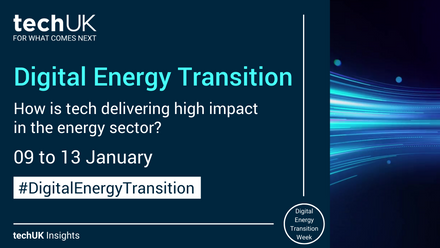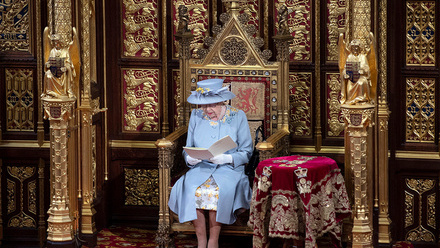How a ‘Digital Twin First’ policy could revolutionise UK Government
In 2013 UK Government introduced its ‘Cloud First’ policy, which aimed to encourage public sector organisations to consider cloud computing solutions before other options. This policy shift was driven by the recognition of the benefits that cloud services could offer in terms of cost savings, efficiency improvements, and agility. Since its inception, the Cloud First policy has brought significant benefits to the UK Government and its various agencies such as eliminating the need for large upfront investments in hardware and the introduction of unparalleled flexibility and scalability.
A decade has passed since the inception of this policy, and its achievements are undeniable. As someone deeply engaged in developing technical solutions to address some of the most pressing challenges in the UK, a thought arises – should the UK Government now embrace a 'Digital Twin First' policy? The logic behind such a move appears not only compelling but almost intuitive, given the strides we've made in leveraging digital twins to enhance decision-making, efficiency, and problem-solving, a 'Digital Twin First' strategy appears to be a forward-thinking approach that holds the potential to revolutionise the way the UK government operates, delivers public services and manages national resources.
Data Driven Decision Making
Digital twins offer unparalleled real-time precision by meticulously mirroring real-world behaviour and trends, furnishing policymakers with a level of data and trustworthiness that underpins evidence-based decision-making. This elevated data quality not only informs the creation of well-informed, effective public policies but also ensures greater accountability, transparency, and overall governance excellence, leading to positive outcomes for citizens and society as a whole.
Accelerated Innovation and Research at Lower Cost
Embracing a 'Digital Twin First' approach empowers government agencies to foster innovation, streamline development, and collaborate efficiently while significantly reducing costs. Digital twins serve as virtual testing grounds for novel ideas and policies, accelerating the innovation cycle and promoting cross-sector collaboration. Furthermore, they enable precise asset management, allowing for timely maintenance and reduced infrastructure expenditures. By proactively identifying and mitigating risks through simulation, the government ensures cost-effective, resilient, and sustainable solutions that maximise the value of public funds. This approach accelerates the development of new solutions and encourages cross-sector collaboration, leading to novel approaches for tackling complex societal challenges.
Efficient Resource Management
Digital twins empower precise monitoring and oversight of public assets and facilities, as demonstrated by Thames Water, one of the UK's largest water and wastewater service providers. Thames Water utilises digital twins to efficiently manage its expansive infrastructure, crafting virtual replicas of water treatment plants and sewer systems. Widespread adoption of such technology across the government would empower the UK to finely tune resource allocation, curtail wastage, and bolster the sustainability of critical infrastructure, culminating in cost savings and heightened effectiveness in delivering public services.
Resilience and Disaster Preparedness
The Japanese government harnesses digital twins to simulate scenarios like earthquakes and tsunamis, a crucial tool for refining their disaster preparedness. These simulations aid in crafting well-informed evacuation plans, fortifying critical infrastructure, and enhancing disaster response strategies, particularly in areas prone to seismic activity. While the geography of the UK differs from that of Japan, this technology can play a vital role in our preparedness to effectively respond to natural challenges such as flooding, coastal erosion, heatwaves, and wildfires.
Smart City Development
Bristol Is Open is a pioneering project that has turned Bristol into a digital twin smart city. It integrates data from various sources, including traffic cameras, environmental sensors, and energy usage, to improve traffic management, reduce energy consumption, and enhance overall city planning. In Manchester, the CityVerve Project has created a digital twin of the city, allowing real-time monitoring of various aspects, such as transportation, energy usage, and air quality. As urban populations continue to grow and the pace of urbanisation accelerates, embracing a 'Digital Twin First' strategy on a national scale becomes a pivotal cornerstone for advancing smart city development across the entire UK.
International Leadership and Economic Growth
Dubai Pulse serves as a comprehensive digital twin of the city. It integrates data from various sources, including IoT sensors, government departments, and private sector entities. This platform provides real-time insights into traffic management, energy usage, environmental conditions, and other aspects of city life and is open to individuals and organisations alike. Their success has attracted international attention and partnerships, positioning them as global leaders in the field. Enacting a 'Digital Twin First' strategy would significantly elevate the UK's standing as a global pioneer in adopting cutting-edge technologies and data-driven governance. This proactive approach would draw international collaborations, foster partnerships, and unlock a wealth of investment opportunities.
Conclusion
Adopting a 'Digital Twin First' strategy holds immense potential for the UK government to transform the way it operates, delivers services, and plans for the future. By harnessing the power of data-driven insights, simulation, and predictive analytics, the government can enhance decision-making, resource management, and disaster preparedness while fostering innovation, transparency, and economic growth. By embracing a 'Digital Twin First' strategy, the government can support the growth of a skilled workforce and ignite economic activity within this technology sector.
As the world becomes more interconnected and technology-driven, adopting a 'Digital Twin First' strategy will enable the UK to take a leading role in shaping the next generation of public services.
Digital Twins updates
Sign-up to receive updates on techUK’s work around supporting the adoption of digital twin technology throughout our economy. You’ll receive regular insights, policy updates, event invitations and projects you can get involved with.
Smart Infrastructure and Systems updates
Sign-up to get the latest updates and opportunities from our Smart Infrastructure and Systems programme.









